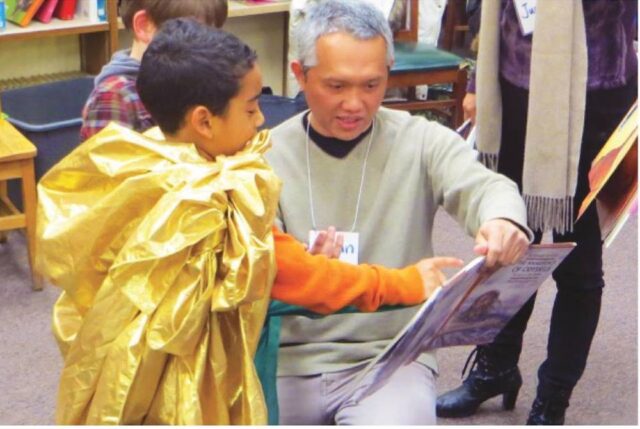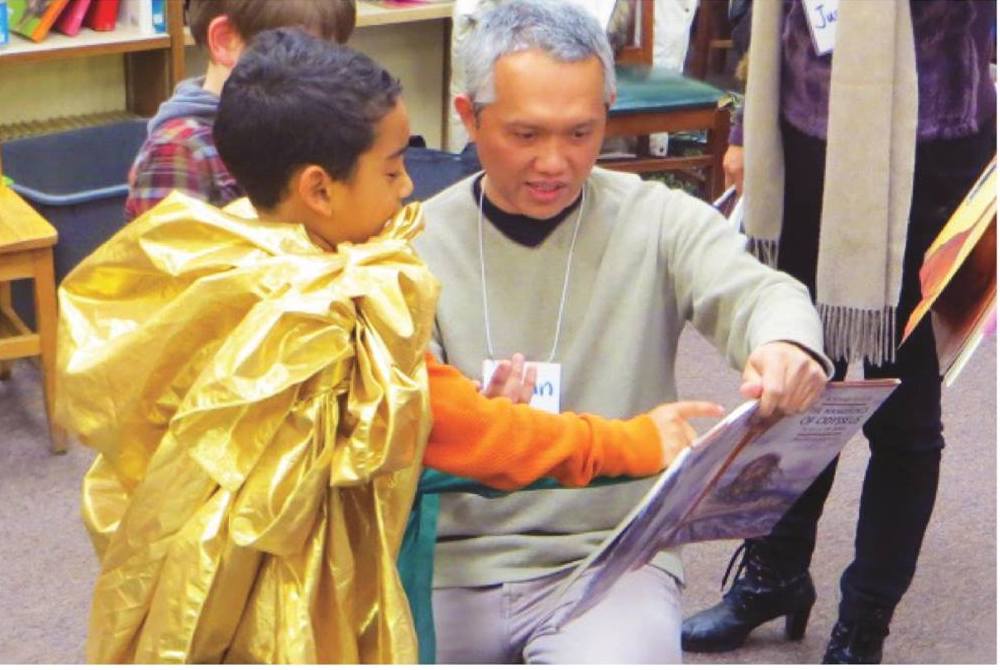On Reading Comprehension: Part 1
By Irfan Rifai
This paper was written while Irfan was undergoing his doctoral study in United States. Due to its length, we post it in two parts.
Reading is a complex activity. It involves neurological, as well as behavioral activities. Coined by the word ‘ comprehension’, ‘Reading Comprehension’ is a term that represents more complicated cognitive and behavioural activities that deal with texts’ demands and the contexts in the efforts of “extracting and constructing” meaning ( RAND, as quoted in Wilkinson & Son, 2010).
Comprehending text, as I understand it, is the main objective of reading. Having read a text of certain kind, no one would want to be left off feeling empty and not gaining any information. However, research found that not everyone is at the same level of ability in comprehending texts. Good readers are said to have better ability to comprehend than the poor readers. What do these good readers do to comprehend texts better? Do they apply certain kinds of strategies? On pedagogical level of question: What should teachers do to ensure that all students comprehend better? Would students benefit from being taught reading comprehension strategies?
 Reading is a combination of both cognitive and social activities
Reading is a combination of both cognitive and social activities
In 2000, National Reading Panel (National Institute of Child Health and Human Development [NICHD] proposed 7 explicit instruction strategies for the practice of teaching reading comprehension. A report that was critiqued by Wilkinson and Son (2010) as giving ‘little’ contribution in seeing reading comprehension as “ a dynamic and context-sensitive” process. The questions over the need or the significance of including Instruction Strategies in reading comprehension classes can be traced to as early as late 1980s when Resnick (1987), Carver (1987), and Pearson and Dole (1987) posed the questions whether strategies really helped students acquire and transfer their existing knowledge to new texts and novel situations (cited in Wilkinson & Son, 2010).
Wilkinson and Son (2010) highlighted some problems when Instruction Strategies are used in reading comprehension classes. Firstly, that instruction can become “too mechanical” and that it will dominate reading activities. On the side of teachers, Wilkinson and Son also mentioned the difficulties that teachers have had to face in sustaining them in the classroom. Furthermore, McKeown, at.al (2009), stated that by stressing the importance of making connection among ideas, students would likely become ‘less aware’ of the process of interacting with text.
Teaching strategies, however, is not always inappropriate. Kinstch and Kinstch ( 2005, in Wilkinson & Son, 2010) believe that teaching strategies promotes students engagement with text and that it help students to construct meaning during reading and link the text with students’ prior knowledge. For Wilkinson and Son, strategies can become a vehicle for students to engage in dialog about text. For them, strategies should not be the focus of comprehending efforts.
another supporter of reading comprehension strategy, Duke, et al. (2011) believe that teachers’ involvement in helping students to comprehend texts better is significant. In their study, they found that there has been ‘lack of good practices’ of reading comprehension in classroom. They also critiqued Pearson’s ‘knowledge begets knowledge’ cycle by presenting the fact that not all students have the same repertoire of knowledge and capacity to understand text at similar pace. Coming from this, they proposed some new ways of looking at strategies and how they should be implemented. Combining reading comprehension activity with writing is one of them. ( End of part 1 )
References
Strauss, V. (2009) Willingham: Why doesn’t reading more make us better readers? Retrieved from http://voices.washingtonpost.com/answer-sheet/daniel- willingham/why-doesnt-reading-more-make-u.html
Wilkinson, I.,A.,G. & Son, E.H. ( 2010) A Dialogic Turn in Research on Learningand Teaching to Comprehend.
Pressley, M. (ND ) Comprehension Strategies Instruction, Michigan State University
McKeown, M.G., Beck, I. L., Blake, R.G.K ( 2009) Rethinking reading comprehension instruction: A comparison of instruction for strategies and content approaches. Reading Research Quarterly, 44 (3), pp. 218 – 253.

Comments :